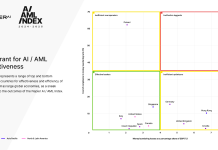During a year of heightened financial crime, the Financial Conduct Authority (FCA) handed out £568m in fines during 2021.
According to the FCA, this total penalty is made up by fines against major banks and action against individuals for insider dealing, non-financial misconduct and carrying out regulated activities without authorisation.
Experts that scrutinised these findings concluded that the high quantity of financial penalties is in response to the new forms of financial crime buoyed by the pandemic.
The FCA mentioned it demonstrated success when it came to consumer protection, with its contact centre preventing £4m being lost to scams, with £5m secured to be paid back to people who invested in companies that were not authorised to undertake financial activity in 2021. Meanwhile, a record 1,300 warnings about scams were issued over the last year.
Over £1.2bn has also been paid out to settle claims made by small businesses after the FCA won its Supreme Court case to clarify business interruption insurance cover.
Standards of the FCA were also found to have been applied more efficiently in 2021. In the year up to 2 December 2021, one in five companies which applied for authorisation were refused, rejected or withdrew their application after discussions.
Encompass Corporation regulation expert Henry Balani said, “The pandemic has provided criminals with the opportunity to defraud, launder and perpetrate other forms of financial crime with more efficiency than ever before.
“Lockdown, and the resulting dependence on digital services, has made it easier for criminals to impersonate legitimate services and scam consumers. On the other hand, it has caused difficulties for the financial institutions themselves to detect malicious activity, as digital identities are harder to verify than the physical or in-person alternatives that existed before the pandemic.
“Unfortunately, the number of scams prevented, and fraudsters fined in 2021 is just a fraction of the total amount of financial crime successfully perpetrated. Therefore, combatting it requires a concerted effort from not just the regulator, but the financial institutions, industry leaders, and banks themselves.
“Equipping said financial institutions with sophisticated RegTech which is able to deal with, and adapt to, modern trends in financial crime is imperative to helping to combat it. This is particularly the case when it comes to Anti-Money Laundering, the detection of fraud, and identity due diligence.”
FCA CEO Nikhil Rathi added, “The FCA has protected customers, enhanced the integrity of the UK’s financial system and promoted competition this year, despite the additional challenges of the pandemic. We have reformed the general insurance market, saving consumers £4.2bn over 10 years, led the transition from LIBOR and helped small businesses claim £1.2bn against business interruption insurance cover. We are looking forward to using our innovative, adaptive and assertive approach to achieve even more for consumers and the financial market next year.”
Copyright © 2022 RegTech Analyst
Copyright © 2018 RegTech Analyst






